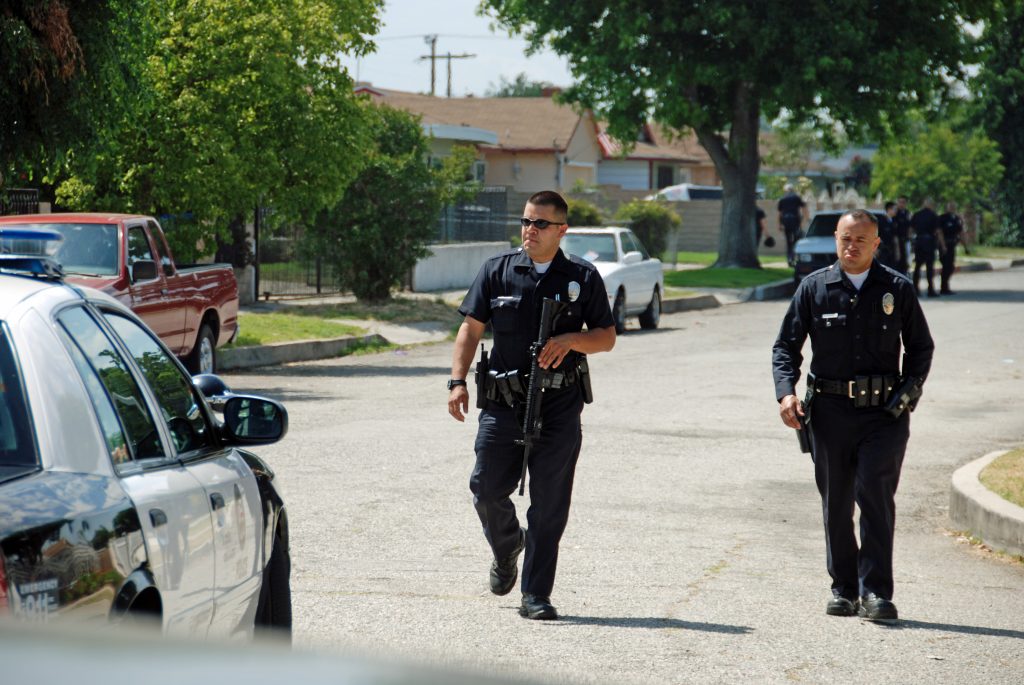
Image Credit: Chris Yarzab, CC BY 2.0, via Wikimedia Commons
By Saul Roth
Recommendations
Police departments should have mandatory psychological evaluations for police officers after every incident that might lead to PTSD or other psychological condition. In addition, depending on the economic situation of the respective department, I believe a psychological evaluation should be part of the constant evaluation of police officers. Police officers are required to be proficient using their weapons at the range annually, and many police departments conduct annual in service training. There should be annual or bi-annual psychological evaluations of police officers.
Many departments have steady tours. In some of the departments, these steady tours are rotated, where police officers will work day shifts for a few months and then rotate to night shifts for a few months. I believe this should be spread through police departments, given that steady tours give officers stability. The changing of the tours allows them to not be stagnant in their positions. Additionally, police officers not assigned to special units should be allowed to work in some special units for a few weeks. This will expose them to how other functions of the police department operate, foster better cooperation, and also create an atmosphere in which the officer is not stagnant in his police assignment.
Stress from police administration is a serious problem and should be addressed. It is also useful to hold meetings in which police commanders from the department meet with the upper echelon of the department. These meetings should be conducted in the spirit of cooperation. Most officers that rise to ranks of police commander are motivated and do not need to be embarrassed and pressured to do their jobs. If they are treated with respect, they would do the same for their mid-level managers at precinct meetings and the same would be spread by these managers to their officers. Police departments should be run by supervision whereby all can participate. Every officer should feel that he or she could contribute and make a difference. Nonetheless, if there is an officer in any of the ranks that does not perform his or her duties, then the discipline process should be initiated.
When I went through the Nassau County Police Academy, there was a family night. Families came to the academy and hear stories from police officers on what the family should expect. I thought this was a great idea, but should not end at the academy, though. The Nassau County Police Department also has the Employee Assistance Unit. This unit has a commanding officer and two officers that are all counselors. Police officers and their families can come to this unit for counseling. They can also obtain referrals for counseling. All departments should have a similar unit. I believe that the unit should be advertised through the department more frequently, as some officers do not know of its services. There can be wall posters in the precincts as well as e-mails. It should be noted that the office reports directly to the commissioner and that the counselors do not report any visits unless they are of an illegal nature and are thus required to be reported.
During my interview, I learned that supervisors reported most if not all alcohol abuse. I believe that this is the best way to get alcohol abuse addressed. Nonetheless, even though supervisors are reporting it, it is still not enough. During in-service training for supervisors, there should be a block of training not only on how to detect alcohol abuse, but also in identifying signs of depression and PTSD. Supervisors need to be made aware that they are not “rats,” but instead may be saving an officer’s life. They need to know how to make referrals. The respective police department should consider making these referrals anonymous to the other police officers and the officer reported. Suicide among the police rank and file is killing more officers than line of duty deaths. There will never be too much that can be done to lower the number of suicides.

Recent Comments